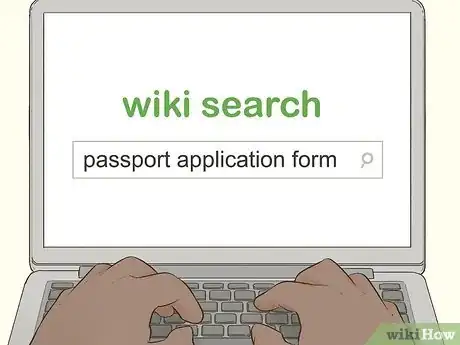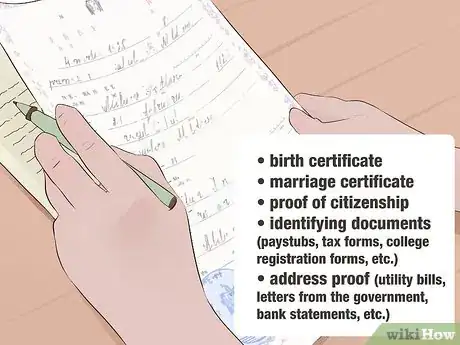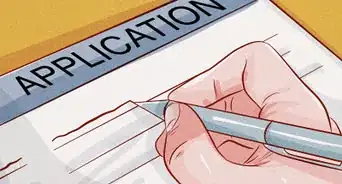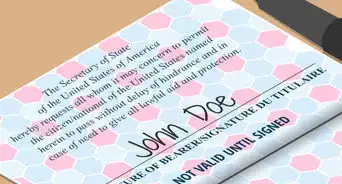This article was co-authored by wikiHow Staff. Our trained team of editors and researchers validate articles for accuracy and comprehensiveness. wikiHow's Content Management Team carefully monitors the work from our editorial staff to ensure that each article is backed by trusted research and meets our high quality standards.
There are 9 references cited in this article, which can be found at the bottom of the page.
This article has been viewed 355,976 times.
Learn more...
A European Union (EU) passport can be handy for traveling, but it can be difficult to obtain one. One option that you have as a US citizen is to claim dual citizenship with an EU country that also recognizes dual citizenship and then apply for a passport in that country. There are several paths to citizenship, including exercising your rights based on heritage, naturalizing in an EU country, or taking advantage of your spouse's citizenship. After you have become a citizen of an EU country, then you can apply for your EU passport.
Steps
Becoming a Citizen of an EU Country
-
1Examine your family tree. One of the paths to citizenship in an EU country is to look at your family tree. You may already have a claim to citizenship based on where one or both of your parents or grandparents were born. The rules about family heritage citizenship vary from one country to another, so make sure that you check the rules of your ancestral country.
- For example, if you were born in wedlock between Jan. 1, 1914 and Dec. 31, 1974 and your father was a German citizen, then you have a claim to citizenship. A child born after January 1st 1975 has a right to German citizenship if one or both parents were German citizens at the time of birth.
- Keep in mind that family heritage is not always necessary to obtain citizenship in an EU country, but it can help make the process easier in some cases. For example, if you want to become a citizen of Ireland, then one of the requirements for citizenship may be waived if you have Irish ancestry.[1]
-
2Consider how long you have been living in an EU country. Some EU countries allow people who have been living there for a certain period of time to obtain citizenship by application. Most countries have special requirements for aliens who wish to apply for citizenship. For example, to be eligible to become a citizen of Austria, you must:[2]
- have lived in Austria permanently for at least 10 years
- have no criminal record
- prove that you have adequate income to live in Austria
- be able to speak and read the German language
- be knowledgeable about Austrian history and current affairs
- have a positive opinion of the Republic of Austria
Advertisement -
3Look into your spouse's heritage. Those who are married to someone with citizenship in an EU country may also apply for citizenship. If you are married and your spouse already has citizenship, then you are eligible to apply for citizenship in your spouse's home country.
- If your spouse was born in an EU country or has a parent who was born in an EU country, then he or she may be eligible to apply for citizenship and then you can apply as well.
- Keep in mind that each EU country has different rules about gaining citizenship through a spouse. For example, those who wish to gain citizenship through a spouse in Austria must have been living in Austria for at least six years and have been living in the same household as their spouse for at least five years.[3] Spouses or registered same sex-partners of German citizens must have lived in Germany for at least three years and have resided in the same household as the spouse or partner for at least two years.
Completing Your Application for Citizenship
-
1Gather necessary documents. Depending on the path to citizenship that you choose, you will need to have a different set of documents. The documents that will be required for your application will also vary by country, so make sure that you check the country's requirements. Required documents may include:[4]
- birth certificate
- US passport
- marriage certificate
- paystubs
- bank statements
-
2Complete the application. Complete the required application for citizenship. Most countries have these forms available online. The application form that you need to complete may also vary depending on the path to citizenship you have chosen and the country where you hope to gain citizenship.
- Make sure that you get the correct form and read it carefully before completing it.
-
3Pay the fee. Before your application for citizenship will be processed, you will have to pay the fees. Citizenship application fees vary by country, so make sure that you check the requirements of the country you are applying to.
-
4Wait for confirmation of your citizenship. Hearing back about your application can take quite a while because of all of the documents and information that have to be checked. You will receive a letter to let you know if your application was approved or denied.
- If your application is incomplete or does not meet the requirements, then it will be denied. However, you can apply again when you do meet the requirements.
- For example, applicants for citizenship in Ireland may be denied if they have not met the residency requirements, but they can reapply when they have lived in Ireland long enough to meet the requirements and may be granted citizenship at that point.[7]
Obtaining Your EU Passport
-
1Apply for a passport in the EU country of your citizenship. After you have become a citizen of an EU country, you will be eligible to apply for a passport from that country. At the time of application, you will need to be fingerprinted and you will also need to present several documents to obtain a passport from an EU country where you have been granted citizenship. These documents may include:[8]
- birth certificate
- marriage certificate
- proof of citizenship
- various other identifying documents such as paystubs, tax forms, college registration forms, etc.
- documents that prove your address is correct such as utility bills, letters from the government, bank statements, etc.
-
2Complete special sections depending on your citizenship type. The path that you took to gain citizenship will influence the sections of the application that you will need to complete. Read each section carefully to determine if you need to complete that section.
- For example, if you obtained citizenship because you were born to a parent or parent from an EU country, then you would fill out a different section than someone who gained citizenship through a spouse.[9]
-
3Get photos taken. Two recent photos will be required along with your application. Passport photos have special requirements, so it is important to get your passport photos done by a professional who understands these requirements. Passport photo requirements include:
- A high-quality color photo with a 600 dpi or higher resolution that gives the skin a natural appearance.
- Your face size in the photo needs to be between 1 ¼ inches (32mm) and 1 3/8 inches (36mm) from the bottom of your chin to your hairline.
- The photo should be sharp and not blurry or dim.
- If you wear glasses, you will need to remove them for the photo.
-
4Pay the fee. Passport fees will vary by country and passport type as well. Check with your country of citizenship to determine how much you will need to pay.
- For example, in Ireland, the standard 10 year passport costs €80, but the larger size passport (66 pages) costs €110.[10]
-
5Track your passport application. Many countries allow you to track the progress of your application online so that you can get a better idea of when you will receive it.[11] If you need your passport in a hurry, express or emergency service may also be an option.[12]
- Unless you have an emergency, it is best to wait until you receive your passport to make any travel arrangements. Otherwise, you may end up not being able to go on your trip if your passport has not yet arrived.
Community Q&A
-
QuestionIf my grandfather was born in Hungary and still has his citizenship, can I easily obtain an EU citizenship as an American?
 Community AnswerYou have to know Hungarian, but otherwise, you can get it based on your grandfather's descent.
Community AnswerYou have to know Hungarian, but otherwise, you can get it based on your grandfather's descent. -
QuestionHow can I obtain an EU or Spanish passport without being a Spanish citizen?
 Community AnswerYou can live in the country (with the correct visa of course), and then obtain citizenship after a number of years. There is not any way to get a passport unless you have close family members that are from said country, i.e. a mother, father or child who was born there.
Community AnswerYou can live in the country (with the correct visa of course), and then obtain citizenship after a number of years. There is not any way to get a passport unless you have close family members that are from said country, i.e. a mother, father or child who was born there. -
QuestionCan I claim German citizenship and obtain an EU passport?
 Community AnswerYes, if you are a German citizen.
Community AnswerYes, if you are a German citizen.
Warnings
- Not all countries allow dual citizenship. In some cases, you may be required to give up your US citizenship in order to become a citizen of an EU country.⧼thumbs_response⧽
References
- ↑ http://www.citizensinformation.ie/en/moving_country/irish_citizenship/becoming_an_irish_citizen_through_naturalisation.html
- ↑ http://www.bmeia.gv.at/en/embassy/consulate-general-new-york/practical-advice/austrian-citizenship.html
- ↑ http://www.bmeia.gv.at/en/embassy/consulate-general-new-york/practical-advice/austrian-citizenship.html
- ↑ http://www.citizensinformation.ie/en/moving_country/irish_citizenship/becoming_an_irish_citizen_through_naturalisation.html#ld1a9a
- ↑ http://www.citizensinformation.ie/en/moving_country/irish_citizenship/becoming_an_irish_citizen_through_naturalisation.html#l62fd2
- ↑ http://www.inis.gov.ie/en/INIS/Pages/WP16000022
- ↑ http://www.inis.gov.ie/en/INIS/Pages/WP16000022
- ↑ https://www.dfa.ie/passports-citizenship/top-passport-questions/passport-application-guidelines/
- ↑ https://www.dfa.ie/passports-citizenship/top-passport-questions/passport-application-guidelines/

































-Step-17-Version-2.webp)




































